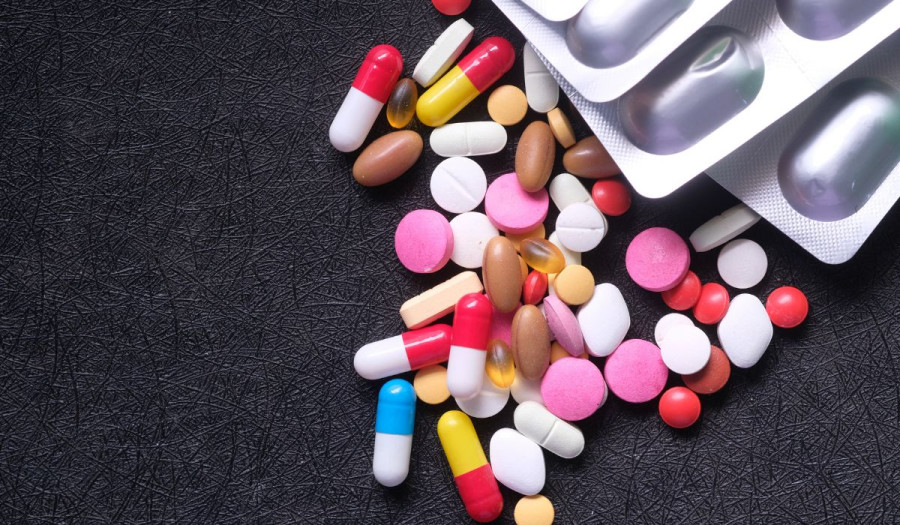Why “All Natural” Drugs Are Not “All Safe”
September 15th, 2025
Have you ever picked up something labeled “all natural” and felt instantly reassured? It’s a common reaction, natural sounds safe, even healthy.
But nature can be just as risky as it is healing, especially when plants are refined, concentrated, or mixed with other substances. That “all natural” label doesn’t always mean what we think it does. Sometimes they are dangerous and even addictive.
This post draws on peer-reviewed research, public health data, and clinical case studies to unpack the facts and help you navigate the truth behind drugs that are sold as being “all natural” and even as “plant-based supplements.”
What Is the “All Natural = Safe” Myth?
Many consumers assume that if something is labeled “natural,” it must be harmless. However, history and contemporary substance use show that natural sources, coca leaves, opium poppies, kratom, cannabis, can be refined into highly potent and dangerous forms. Modern concentrates like THC dabs [1] or kratom extracts and derivatives like 7OH [2] can carry risks that go well beyond what exists in nature.
Just as some prescription medications derived directly from plants, like digitalis from foxglove, can be toxic if misused, drugs like “K2” and other marijuana substitutes that are sold as “derived from natural ingredients” can create serious health issues including addiction.
Nature may be where things started, but humans can refine things to a potency that puts people at risk. Safety should be a matter of science, not marketing.
Signs and Symptoms of the “Natural = Safe” Trap
Believing that natural means non-addictive or non-toxic can set people up for harm. This mindset may lead to dismissing warning signs about cannabis or kratom, underestimating the dangers of high-potency forms, escalating to concentrates like THC dabs or 7-OH, and experiencing dependence or withdrawal [3] despite a belief in safety.
Recovery may be derailed by the conviction that “it’s just plant-based,” and marketing messages may be trusted over scientific evidence.
Causes and Risk Factors
Our cultural affinity for natural or plant-based remedies, combined with skepticism toward pharmaceuticals and persuasive marketing [4], primes us to equate natural with safe. Traditional or historical uses of plants reinforce these beliefs. When someone seeks a “safer” alternative, the allure of natural products is strong—even when potency and purity vary widely.
Contamination, Hidden Ingredients, and Dangerous Side Effects

Herbal and “natural” supplements are not regulated like prescription medications. They are often sold as food products, which means they don't go through rigorous safety or efficacy testing before hitting the market. Thus, when new drugs like 7OH or K2 are sold as “herbal supplements,” they have little or no regulation or oversight.
Unlike alcohol or tobacco, there is no requirement to warn consumers that these products can be addictive. This means many people are walking into a trap that is baited with the words “all natural” or “herbal supplement.”
Even between batches of the same product, the active ingredient levels can vary. That inconsistency can be dangerous, especially for individuals with other health conditions or those taking prescribed medications.
Natural substances can cause serious side effects and may even interfere with medications you're already taking. These risks often go unnoticed because people assume that plant-based means low-risk, but the consequences can be severe. This includes addiction, building a tolerance so that you need more and more, and withdrawal symptoms that make it very difficult to quit.
If you or someone you love is struggling with such symptoms, it may be time to seek professional help.
Treatment Options
Effective treatment doesn’t distinguish between natural or synthetic substances—it focuses on evidence-based care. Cognitive Behavioral Therapy (CBT) and trauma-informed approaches help address underlying drivers of use. Medication-assisted treatment may be appropriate depending on the substance and severity, and innovative therapies like individualized transcranial magnetic stimulation (“Brain Frequency”) are part of Windmill’s offerings. Family education dismantles myths around “natural” substances while promoting recovery-supportive understanding.
Co-Occurring Conditions
- Anxiety, depression, or PTSD may accompany or drive [5] natural substance use like cannabis or kratom.
- Use of these substances can complicate or mimic symptoms of alcohol or opioid use disorders.
- Belief in natural safety can mask polysubstance abuse and delay professional intervention.
Our Approach at Windmill Wellness Ranch
At Windmill, we see beyond labels—whether a substance is natural or synthetic, our focus is on the individual behind it. We combine careful myth-busting education with evidence-based clinical care, family engagement, holistic support, and alumni resources, ensuring myths never overshadow healing.
Hope and Recovery Are Possible
Nature doesn’t always mean safe—but that doesn’t mean danger is undefeatable. With accurate information, clinical expertise, and social support, people can break free from myths and move toward sustainable recovery. If you or someone you love is struggling, please know you don’t have to face it alone. At Windmill Wellness Ranch, recovery is possible, and we’re here to walk alongside you.
Call 830-223-2055 or contact us online to take the first step toward healing.
References
1. Mullins, M. F. (2021). Cannabis dabbing: An emerging trend. Nursing2024, 51(5), 46-50.
2. Knopf, A. (2025). FDA takes steps to restrict kratom byproduct. Alcoholism & Drug Abuse Weekly, 37(30), 8-8.
3. Wightman, R. S., & Hu, D. (2024). A Case of 7-OH Mitragynine Use Requiring Inpatient Medically Managed Withdrawal. Journal of Addiction Medicine, 10-1097.
4. Hill, K., Boyer, E. W., Grundmann, O., & Smith, K. E. (2025). De facto opioids: Characterization of novel 7-hydroxymitragynine and mitragynine pseudoindoxyl product marketing. Drug and Alcohol Dependence, 272, 112701.
5. Amendola, S., Hengartner, M. P., Ajdacic-Gross, V., Angst, J., & Rössler, W. (2022). Longitudinal reciprocal associations between depression, anxiety, and substance use disorders over three decades of life. Journal of Affective Disorders, 302, 315-323.
FAQs
Is cannabis addictive even though it’s natural?
Yes—especially high-potency cannabis. Systematic reviews and observational studies link high-THC products with significantly higher dependence risk and severity of cannabis use disorder.
Is kratom a safe substitute for opioids?
Not safely so. Evidence indicates that kratom’s alkaloids—including 7-hydroxymitragynine—interact with opioid receptors and carry dependence and misuse potential. Preclinical studies raise concerns about potency and risk.
Why do people equate natural with safe?
A mix of marketing influence, cultural beliefs in traditional remedies, and skepticism of pharmaceutical interventions push us toward that assumption. Yet even natural elements—like arsenic or rattlesnakes—can be lethal.


